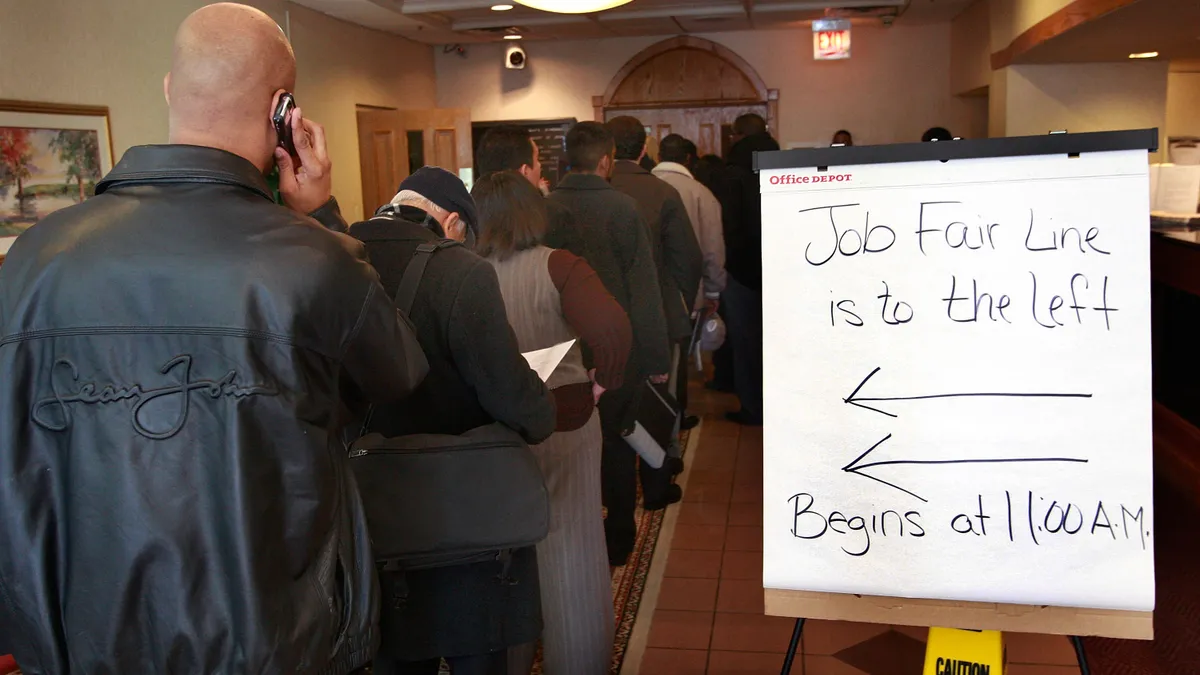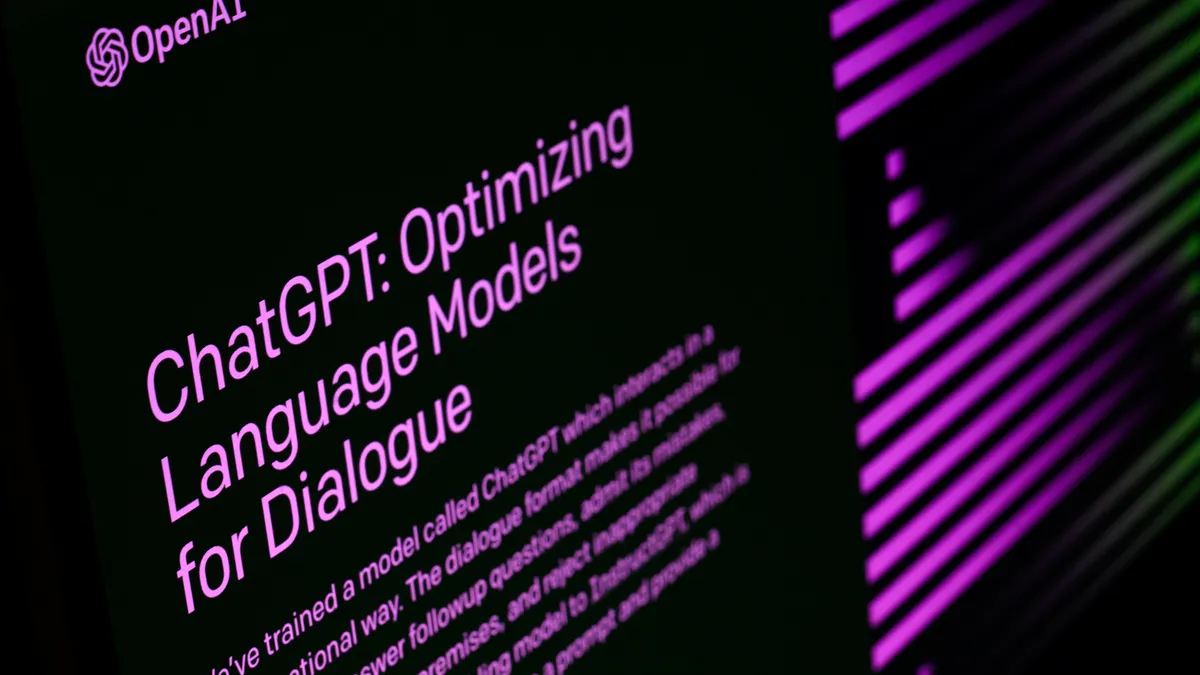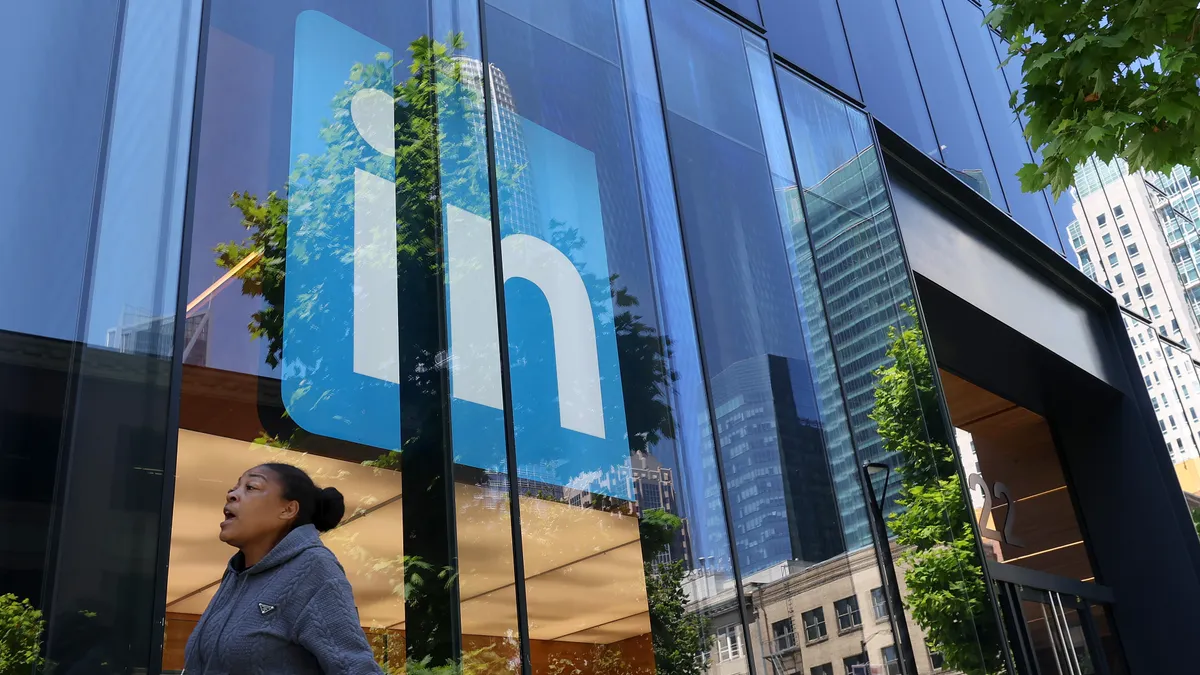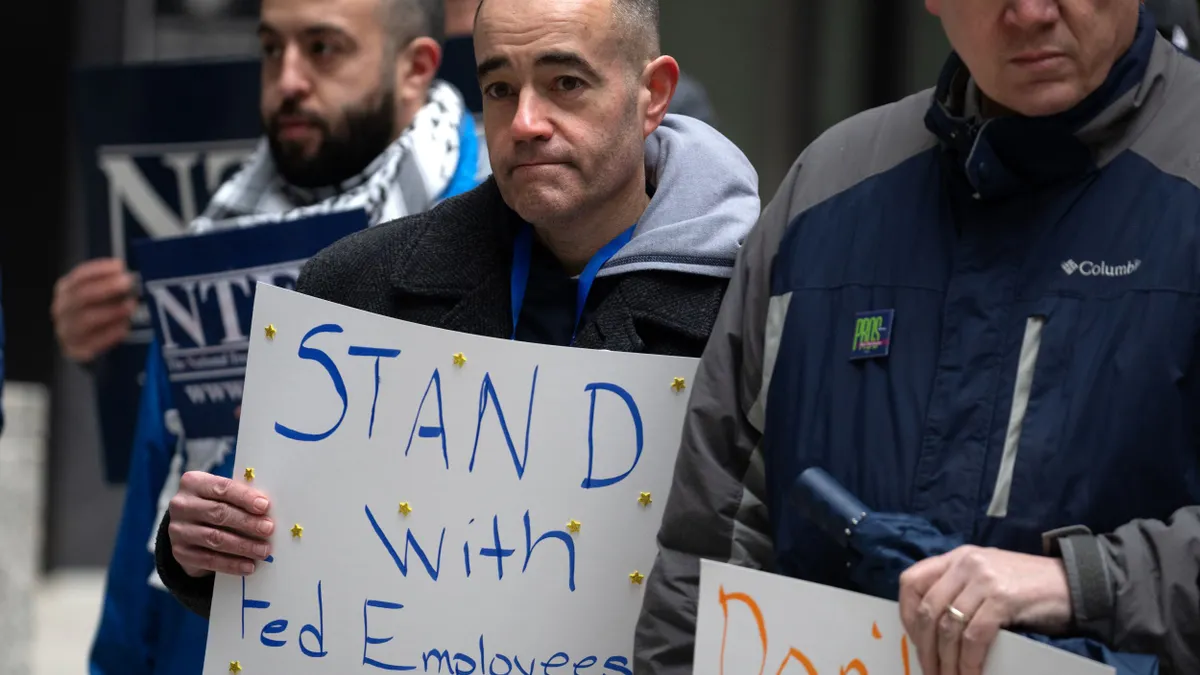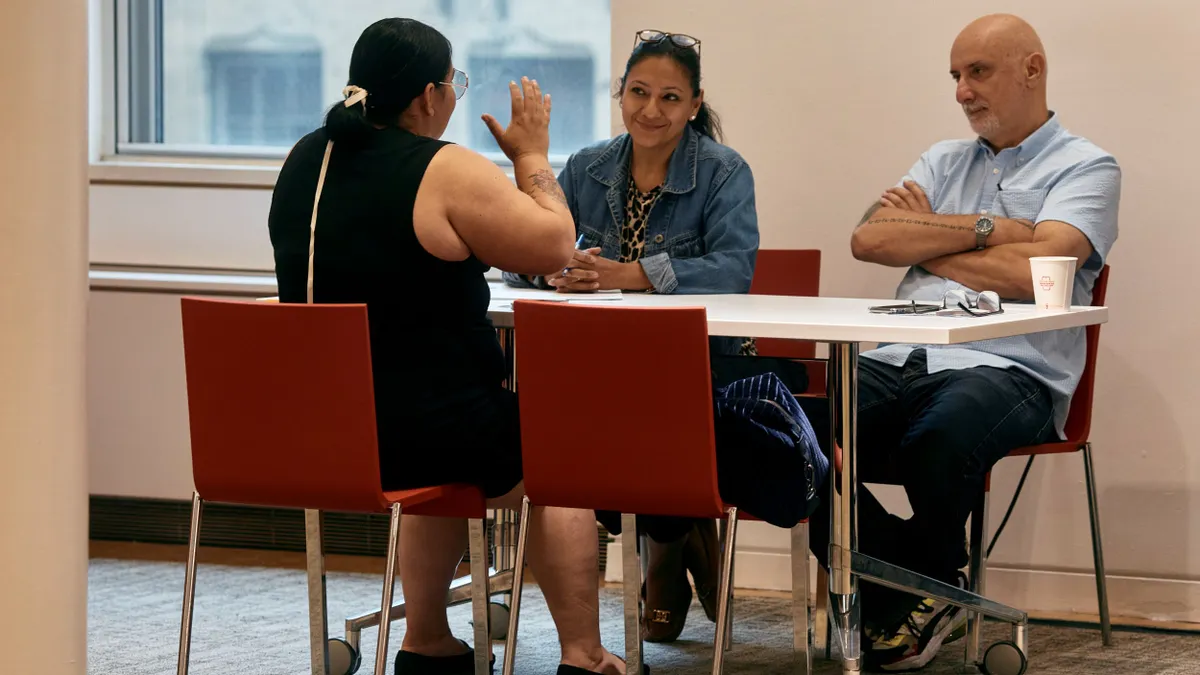If you’ve never heard the term "blockchain," you’re not alone. If you have but don’t know what it means, you’re also in good company. Blockchain isn’t the newest tech (Bitcoin relies on it), but it's becoming more mainstream. It has the potential to disrupt everything we do online and in the real world, including traditional HR processes.
Blockchain refers to a digital, decentralized ledger of, well, anything. It can be used to track all kinds of information and is largely immune to falsification, according to CB Insights. You can keep it to yourself or share it with others. Blockchain eliminates the “trusted third party” in transactions, removing unneeded intermediaries and creating efficiencies. This eliminates usage fees and puts the process directly in the hands of the sender and recipient of information. (Want more? CB Insights has a full explainer here.)
Think of it like Uber, but without the middleman. Parties can access a driver, schedule a ride, verify that the ride took place and pay for the ride. Adam Bridgers, attorney with Fisher & Phillips LLP, notes that blockchains can be public or not; “Companies can create their own private blockchains that never leave their servers.”
Who’s testing the waters?
Although in its relative infancy, blockchain is being used and investigated across a variety of industries.
Banks are looking at its use in payments and records. The world’s largest transporter, Maersk, tested the tech earlier this year to track cargo. One pilot was run with a series of third parties including shippers, Dutch customs and the Department of Homeland Security. Retail behemoth Walmart is using it to track how livestock from China moves through the supply chain. In education, blockchains are being set up to secure and share student records, degrees and credentials. MIT recently launched Blockcerts, a “permanent and tamper-proof infrastructure of trust.”
Even the legal industry is hopping on board. “Smart contracts” are being written by attorneys. They release money from escrow once a deed is transferred, or when the terms of any kind of agreement are met.
How will HR capitalize on blockchain?
For HR, the potential uses could be limitless. For hiring, access to academic credentials and certifications could reduce the amount of time recruiters spend verifying information.
It also could reveal a wealth of new information.
“By ignoring credentials people have earned post-graduation, you’re losing out on a hugely valuable data set,” Danny King, Co-Founder and CEO of Accredible said. Blockchains can open access to post-graduate accomplishments, and King predicts savvy recruiters will be able to find “diamonds in the rough” by leveraging blockchain.
“Organizations that can recruit based on verifiable credentials can find candidates that are overlooked by other organizations that are focusing only on traditional education and resumes," he said. "This provides a competitive edge in hiring from a limited talent pool."
Once a credential is recorded to the blockchain, it can’t be changed or faked. A phony credential may look like an issued one, but won't verify against the original blockchain record. Digital credentials would remain secure, even if the company issuing them is hacked. For candidates, their records remain available, even if schools or businesses shut down.
Blockchains also can be used to execute benefits, events or payments. When an employee becomes eligible for health coverage, they could be used to initiate the benefit; when a probationary period is satisfied, the blockchain can trigger an increase in wages. It could even be used to administer employee contracts, like non-competes.
Employers also may soon use the tech to perform background checks or log calls made by sales reps, says Chris Szymansky, CTO of JazzHR.
Finally, it could be used for employee reviews and grievances. “Previous employers could put past performance reviews on a chain," Bridgers says. "Ask an employee for access to review information on their past — cutting down on intake process.” It could also be used for union environments, giving everyone access to agreements and contracts. For grievances, he notes, “people are even working on dispute resolution blockchains.”
For international employees, blockchain can process payroll faster and less expensively, skirting international currency trade fees. By cutting out the intermediary, payments could come within hours rather than days.
For candidates, blockchain could realize the concept of a "self-sovereign identity." Individuals could have complete control over the data of their lives, providing access keys when they apply for jobs. They could include degrees, certifications, courses taken, grades, employment history, salary and more.
Potential pitfalls
Szymansky knows blockchain is in its infancy. "Today, the quality of coding will have to be tested and secure – we are at the early stages – how many years are we into the internet and we’re still seeing hacks?" he said. "The potential for things to fail is there. Blockchain will have to evolve to be secure, more user friendly and verifiable before it becomes as common as the internet is today."
Bridgers says he wonders whether blockchain will present similar problems to those we see today with social media. Companies sometimes encounter information they shouldn't have while viewing candidates' social media accounts; the same could happen with blockchain data. "Will we be asking whether we should ask candidates for access to blockchain in the future?"
We’ll also have to shift our thinking about sharing information, Bridgers said; "In addition to having the tech, we have to have the cultural readiness to go there."








